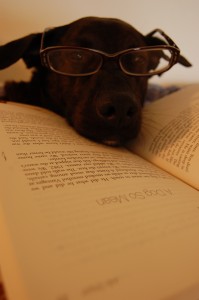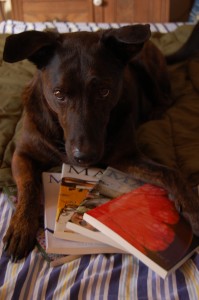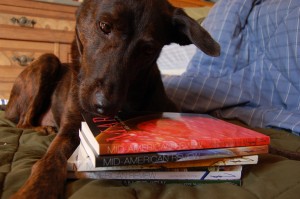Our poetry panel features continues with these 5 great workshops that you can attend at Winter Wheat!
“From Lyric to Lebowski: Writing the Pop Culture Poem,” with Donora Hillard
What does it mean to write a “good” pop culture poem? How can poets use pop culture to access elements of love, anxiety, misery, hope? Led by Donora Hillard, whose most recent full-length poetry collection, Jeff Bridges, was released by Cobalt Press in 2016, this workshop will work through those questions and more. Participants will each leave with a poem draft that gets to the root of what we love—and why we love—in the public consciousness.
Donora Hillard is the author of Jeff Bridges (Cobalt Press, 2016), The Aphasia Poems (S▲L, 2014), and other books of poetry. Her work appears in Hobart, Women in Clothes (Penguin), and elsewhere. She teaches at The University of Akron and lives in a tiny house with the writer Andrew Rihn.
(this workshop will be held on Friday, November 4th from 3:00-4:15pm. If you’re interested in attending this workshop, select A3 when you register!)
“First, Put Pen to Paper: Instructions as Poetry,” with Daniel Gualtieri
Modern and contemporary poetry contains a great tradition of poems written as sets of instructions, advice, or even recipes. This poetic form can provide interesting structural advantages, a confident and assertive voice, and fresh content for the poet of today. In this workshop, we will delve into the nature, use, and assembly of these instructional poems, take a look at some examples from great poets of the past and present, and spend time writing our own instructional poems and discussing them in a small-group setting.
Dan Gualtieri is an MFA poetry student at BGSU, and a native of Columbus, OH. He writes fiction and creative nonfiction in addition to poetry, and thrives on continental philosophy, theology, caffeine, and sushi.
(this workshop will be held on Friday, November 4th from 4:30-5:45pm. If you’re interested in attending this workshop, select B3 when you register!)
“Poetry as Meditation,” with Karen Craigo
For the presenter, each day begins with a poem—one that aims to change her own mindset and to encourage peaceful contemplation in others. Join this workshop to consider the idea of poem as meditation—a tool for connecting with a universal mind. Most poetic education is based on the very useful idea of a piece of writing as a flawed product that requires tinkering. This session explores the notion that a piece of writing might just be an artifact of the spirit, rather than a workshop fix-it project—while understanding that neither mindset suffices on its own.
Karen Craigo is the author of the poetry collection No More Milk (Sundress, 2016) and the forthcoming collection Passing Through Humansville (ELJ, 2017). She maintains Better View of the Moon, a daily blog on writing, editing, and creativity, and she teaches writing in Springfield, Missouri. She is the nonfiction editor and former editor-in-chief of Mid-American Review, the reviews editor of SmokeLong Quarterly, an editor of Gingko Tree Review, and the managing editor of ELJ Publications.
(this workshop will be held on Saturday, November 5th from 9:30-10:45am. If you’re interested in attending this workshop, select C3 when you register!)
“Existence as Conditional on Others’ Perceptions and the Deconstruction of the Self,” with Remi Recchia
The goal of this workshop is to produce new poems centered on the idea of the existence or nonexistence of the self. The focus of this workshop will be to deconstruct your own ideas of who you are and see if there is a core “you” and how it affects your creative work. After a brief presentation, we will examine who we think we are as writers and, more importantly, humans, and challenge these perceptions during a discussion/workshop and in-session writing time. This session is appropriate for all levels of writers or anyone who is interested in existence.
Remi Recchia is an MFA candidate in poetry at BGSU. He has been published in Glass: A Journal of Poetry,Cutbank Literary Journal’s online “All Accounts & Mixture” series, and The Birds We Piled Loosely, among others, and has a piece forthcoming in Ground Fresh Thursday Press.
(this workshop will be held on Saturday, November 5th from 1:30-2:45pm. If you’re interested in attending this workshop, select E8 when you register!)
“Writing a Love Poem that Doesn’t Suck,” with Luke Marinac and Lyric Dunagan
How can an emotion as powerful as love so often give rise to overly sentimental, cliché-riddled poetry? Is it impossible to wrangle this emotion in writing without feeling as though we’ve forgotten our pantaloons and lyre?
Although the love poem is well-trodden territory, it’s constantly presenting us with new and strange paths to assuage our confessional impulses. From ancient Mesopotamia to Kobe Bryant, we’ll examine how the love poem has evolved throughout the years and its function in contemporary society, then experiment with approaches to crafting a love poem that doesn’t suck.
Luke Marinac, a transplant from Appalachian Tennessee, is in the MFA Program at BGSU. His poems have appeared or are forthcoming in the North American Review, Pittsburgh Poetry Review, Anamesa, and Stirring, among others.
Lyric Dunagan graduated with her MFA in poetry from the University of Tennessee in 2016. Her poetry has previously appeared in Cactus Heart, New Madrid and The Volta among others.
(this workshop will be held on Saturday, November 5th from 3:00-4:15pm. If you’re interested in attending this workshop, select F7 when you register!)




